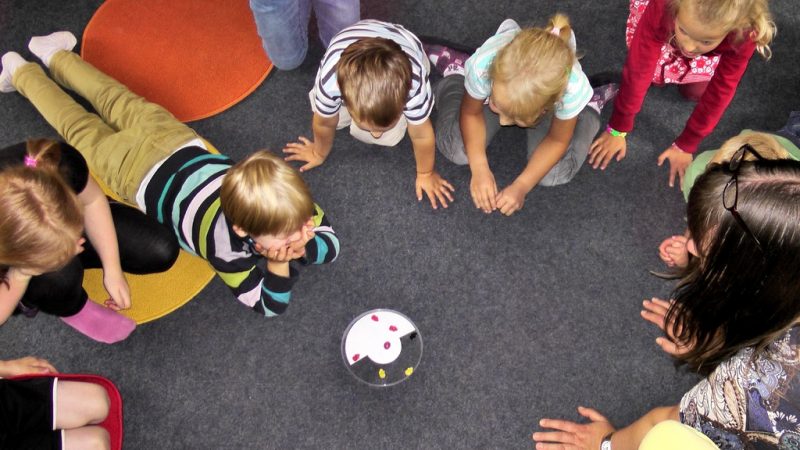Sure Start shows us that investing in a dedicated early years support service is a sound investment.

Ben Cooper (@BenCooper1995) is a senior researcher at the Fabian Society
Far too many children born today are held back by the circumstances of their birth. Disadvantaged young children quickly fall behind their richer peers and are not adequately supported to catch-up. If the next government is to deliver change, they will need to act urgently to reduce inequalities and give every child the best start in life.
We increasingly know what works on tackling early years inequalities. In April 2024, the Institute for Fiscal Studies presented new evidence on the benefits of Sure Start under the last Labour government. Children who had access to this ‘one-stop shop’ of support did better at every stage in school, including in their GCSEs. And those from the lowest income families who accessed these services benefitted the most, with GCSE results on average three grades higher than those who did not. This new evidence compliments existing research that showed Sure Start reduced hospitalisations and behavioural problems, as well as resulted in safer home environments.
But austerity reduced these services for the youngest children on the lowest incomes. Since 2010, over 1,300 Sure Start and children’s centres have closed. Those that remain have been hollowed out, providing fewer services to fewer families. More broadly, between 2010 – 11 and 2020 – 21, spending per young person on children’s services (such as Sure Start) fell most sharply in the most deprived local authorities. The evidence suggests that this has contributed to a widening educational attainment gap between disadvantaged children and the rest since 2017.
Eventually, the Conservative government recognised a need to do something for young children, and announced a Family Hubs programme back in 2022. But this was a poor substitute, and just £300m of funding was provided spread out over three years. This is compared to £2.5bn for Sure Start in 2010 alone (in today’s prices).
Beyond low funding, there are fundamental problems with the Family Hubs concept. They are designed to provide services for a very wide age range – for families with children aged up to 19, or to 25 in the case of disabled children. In doing so, they risk spreading resource too thin and failing to support the youngest, poorest children.
With a likely change in government, there is an opportunity to create a dedicated early years support service, that serves all families with babies and children under-five. A national entitlement should be established with every family having the right to – at least – enhanced baby and parental health services, parenting support, and help with the home learning environment.
There should also be a mixture of evidence-based universal help and targeted interventions, with an emphasis on families helping to design local services and providing peer-to-peer support. This is something that we can learn from Sure Start: parental outreach and community input into the services offered were found to be really important for the success of a local early years programme.
But building this dedicated early years service will take time. Tight fiscal constraints mean an immediate return to the scale of early years’ investment when Labour left office in 2010 is unlikely. Therefore, the most disadvantaged areas must be prioritised, just as with Sure Start in the first few years of its existence. And reformed Family Hubs can provide a foundation rather than wasting time and money building a new service from scratch. Over time, adequate and long-term investment can be provided to support every family who needs it.
Sure Start shows us that investing in a dedicated early years support service is a sound investment. It means far fewer expensive and difficult interventions are needed later in life. The next government should have an ambition to tackle health and education inequalities that open up right from birth. In doing so, Britain can be the best place to grow up for every baby and child.
Left Foot Forward doesn't have the backing of big business or billionaires. We rely on the kind and generous support of ordinary people like you.
You can support hard-hitting journalism that holds the right to account, provides a forum for debate among progressives, and covers the stories the rest of the media ignore. Donate today.



